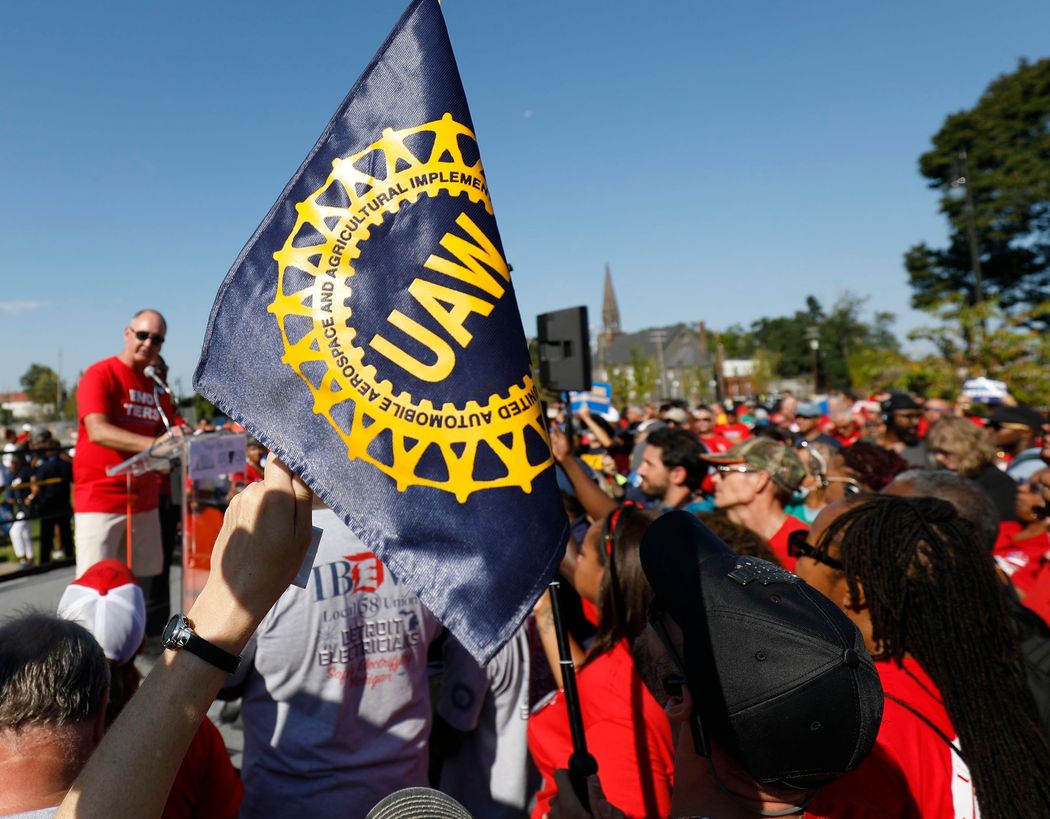Jacqueline Rayfield is a student at Harvard Law School.
In today’s News and Commentary, United Auto Workers gear up for a strike after their contract expires with Detroit Three automakers Thursday evening, marking the first ever simultaneous labor stoppage at all three firms and one of the largest U.S. industrial labor actions in recent history.
Ford, General Motors, and Stellantis (Detroit Three) are nearing the deadline for negotiations at 11:59pm on Thursday, when UAW workers plan to begin a stand-up strike. This would mark the largest strike activity by active union employees in the U.S. in 25 years. So far, none of the Detroit three have come close to offering UAW’s proposed 46% pay raise over four years. Stellantis has offered a 14.5% increase, and Ford and GM have offered 10%. These offers come after automakers pulled in $21 billion in profit the first six months of this year alone. UAW leaders have called automakers’ offers “disappointing” and demand a higher share of the firms’ profits. The union’s demands also include restoring pensions, a 32-hour work week, job security, and an end to use of temporary workers.
The UAW has announced that they will initially target only specific plants for work stoppages but could include others or change plans entirely before the Thursday deadline. Focusing strikes on a few strategic plants could help the UAW to extend their $825 million strike fund to put more pressure on automakers.
The potential for strike has drummed up attention from politicians. Nancy Pelosi said automakers now “have the means and the opportunity to invest in their workers.” Bernie Sanders wrote in an opinion piece that “all of us should support the strikers,” if UAW choses to strike Thursday night. However, President Biden on Labor Day remained optimistic that a strike would happen. UAW leadership has pushed back explaining that “it’s time for politicians in this country to pick a side.” While most other major labor unions have endorsed Biden’s reelection bid, the UAW remains a hold out.






Daily News & Commentary
Start your day with our roundup of the latest labor developments. See all
July 4
The DOL scraps a Biden-era proposed rule to end subminimum wages for disabled workers; millions will lose access to Medicaid and SNAP due to new proof of work requirements; and states step up in the noncompete policy space.
July 3
California compromises with unions on housing; 11th Circuit rules against transgender teacher; Harvard removes hundreds from grad student union.
July 2
Block, Nanda, and Nayak argue that the NLRA is under attack, harming democracy; the EEOC files a motion to dismiss a lawsuit brought by former EEOC Commissioner Jocelyn Samuels; and SEIU Local 1000 strikes an agreement with the State of California to delay the state's return-to-office executive order for state workers.
July 1
In today’s news and commentary, the Department of Labor proposes to roll back minimum wage and overtime protections for home care workers, a federal judge dismissed a lawsuit by public defenders over a union’s Gaza statements, and Philadelphia’s largest municipal union is on strike for first time in nearly 40 years. On Monday, the U.S. […]
June 30
Antidiscrimination scholars question McDonnell Douglas, George Washington University Hospital bargained in bad faith, and NY regulators defend LPA dispensary law.
June 29
In today’s news and commentary, Trump v. CASA restricts nationwide injunctions, a preliminary injunction continues to stop DOL from shutting down Job Corps, and the minimum wage is set to rise in multiple cities and states. On Friday, the Supreme Court held in Trump v. CASA that universal injunctions “likely exceed the equitable authority that […]